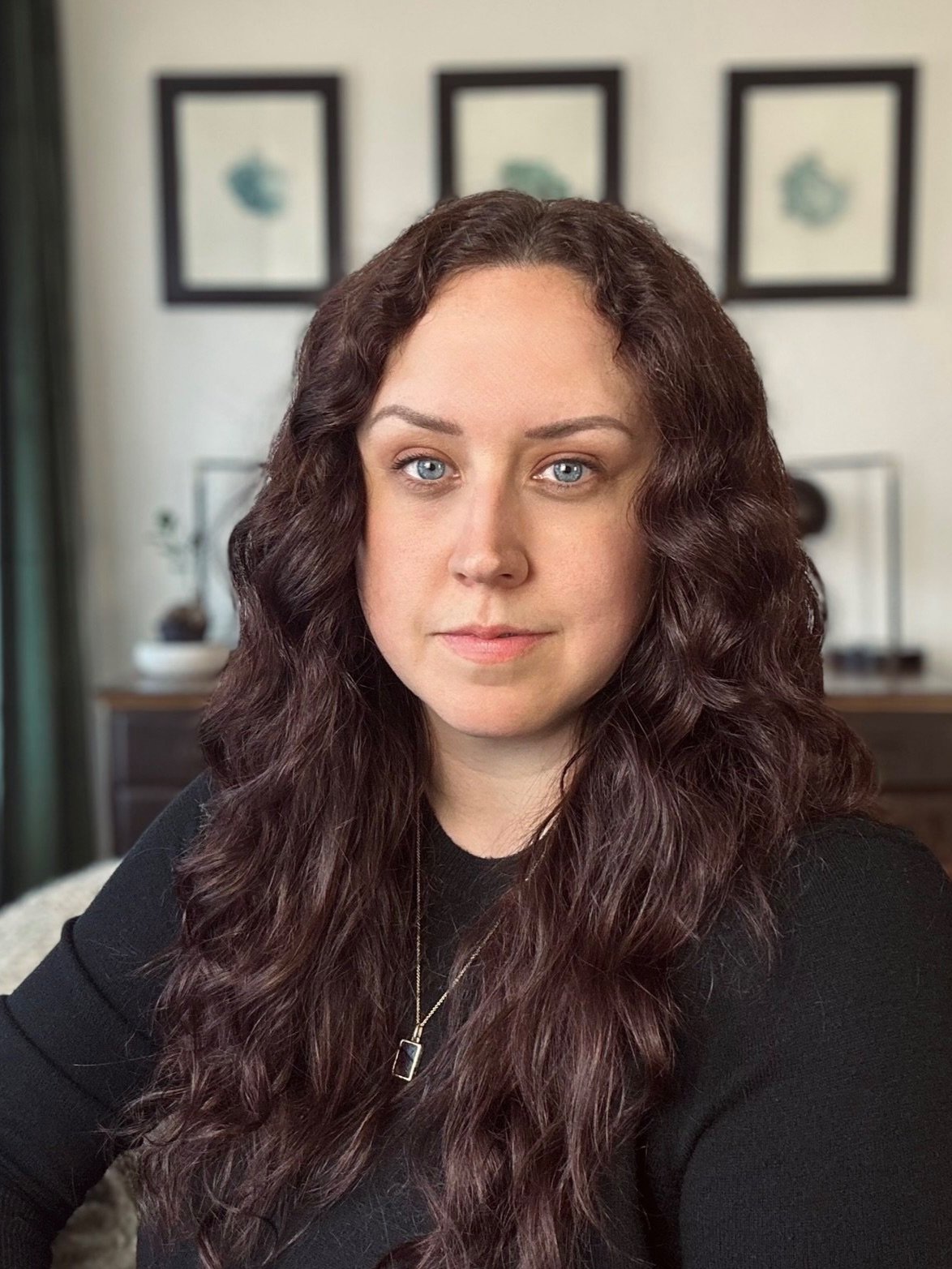
Grief Counseling
In Seattle
We don’t move on, but we can keep going
Keep Going with Grief Counseling
Grief can make the world around you, that you know so well, feel like unfamiliar territory. Your emotions change from one moment to the next. The sadness, confusion, and even anger show just how much you cared and you loved. Yet, the world keeps moving around you, expecting you to carry on as if everything is the same, even when it isn't. It is incredibly tough, feeling so much and sometimes feeling alone in it.
Simple things like a chatting with someone, recalling a memory, or hearing a certain song can bring back the pain of your loss. We know that when people around us try and console us, even if they want to help, might say things that don't quite fit or feel right to you. The weight of these expectations, along with what you're already feeling, can make days seem long and tough. We know you are not okay, and that’s okay.
We can understand the pain you're going through, especially when others might not fully get it. Sometimes, when people say things like "move on" or "it'll get better," it can feel like they're rushing your feelings. Even if they mean well, it can make you feel more alone or misunderstood. It's tough when it seems like everyone expects you to act like everything's back to normal. Reach out today and book your free consultation. Let’s work through this together

The Many Faces of Grief
Cultural or National Grief/Collective Grief: Collective grief is a communal experience of loss, often triggered by national or global tragedies such as terrorist attacks, natural disasters, or the death of significant public figures.
Loss of a Pet: The bonds between people and their pets can be incredibly strong, and the death of a pet can trigger a grieving process similar to what occurs after the loss of a human loved one.
Anticipatory Grief: This is a common form of grief experienced when a loved one is facing a terminal illness or other impending loss. It's the grief that comes from the anticipation of loss and the emotional preparation for it.
Secondary Loss: After a primary loss, like the death of a spouse, individuals often experience secondary losses such as the loss of companionship, financial security, or shared future plans. This complex aspect of grief is common and can be difficult to navigate.
Loss of Health: A significant health diagnosis or the onset of chronic illness often triggers a grieving process as individuals come to terms with how their lives may change, the loss of their former health, and the implications for their future.
Common Myths About Grief
Unveiling Grief Myths Clears the Path to Authentic Healing
Uniform Grieving Process
The idea that grief follows a fixed, universal path is a myth. Your grieving process is unique to you and your loss. The five stages of grief (denial, anger, bargaining, depression, acceptance) may not apply to everyone or follow a strict order.
Finite Grieving Duration
Grief doesn't have a set timeline, and has a tendency to come back. You may revisit feelings of loss over time, even after seeming to have "moved on".
Right Way to Grieve
There's no one right way to grieve. Each person's grieving process is individual and unique. Comparing one's process to others or adhering to societal expectations can make an already unbearable experience even worse.
Moving On Quickly
The idea that it's best to quickly move on and not dwell on grief is misleading. Avoiding or suppressing grief can lead to emotional complications.
Inability to Feel Happiness
It's a myth that grieving individuals can't experience happiness or laughter. Emotions are complex, and moments of joy do not diminish the depth of your grief.

How Can Therapy Help Move Through Grief?
Supportive, Hopeful, and Understanding
Understanding and Normalization
Grief is a normal part of life we all face as we move through life. Your feelings are normal and appropriate. Through therapy, we explore the natural responses to loss, ensuring you feel seen and validated in your experience.
Individualized Coping Strategies
We work together to develop coping strategies that suit your grieving process, whether you are an intuitive griever (outwardly express your emotions) or an instrumental griever (focus more on the tasks connected to your loss). Our goal is to help you navigate through your grief in a way that resonates with you.
Identifying Barriers
There may be internal or external challenges are stopping you from fully expressing your grief in a way that feels true to who you are. We support you in identifying potential barriers that may be preventing you from integrating your grief in a way that allows you to carry it with care and self-compassion.
Creating Continuing Bonds
We can support you in tending to the bonds and memories that connect you to your person. Through therapy, we explore meaningful ways to honor and cherish your time together and include them in your future.
Self-Advocacy and Boundary Setting
Boundaries are important in grief just as they are in daily life. Learning how to advocate for the support you need during your grieving process is integral. Together, we can navigate interactions with others to help strengthen your relationships.
Expression and Validation of Emotions
We provide a supportive environment where you are encouraged to express your emotions freely. Grief is complex, and it is very common to experience complex feelings of anger, joy, sadness, guilt, and hope.
Take The Next Step
Your Path to a Lighter Tomorrow Through Grief Starts Here
As days pass, there might be pressure to hide how you really feel, whether at work, with friends, or just day-to-day life. It's hard when you feel you have to hide your true feelings or put on a brave face. Every held-back emotion or avoided topic can make things feel even harder. We are here to listen and support you, no matter how long it takes.
We invite you for a free consultation. We’re here to provide a safe space for your emotions, help you with personalized coping strategies, and empower you to express your feelings authentically. Your journey through grief is unique, and we’re committed to supporting you every step of the way. If any of this feels true to you, reach out for your free consultation. Let’s work together, so you can carry your grief a little easier.

Your Specialized Therapist
Sam MCCann, LMHCA
Specializing in grief, anxiety, and neurodiversity-affirming therapy for late and self diagnosed ADHD and Autistic adults.

Are you wanting to lean more about grief?
Here are some helpful resources.
"It's OK That You're Not OK" by Megan Devine champions the idea that grief isn't about 'moving on', but rather understanding and embracing your unique journey of loss.
We've seen how grief can leave individuals feeling isolated and misunderstood. This book breaks that isolation, offering a heartfelt reminder: your pain is valid, and you're not alone. Devine's compassionate and genuine approach resonates deeply with our philosophy—meet, validate, and support. Click on the image to buy your copy today.
"Moving On Doesn't Mean Letting Go: A Modern Guide to Navigating Loss" explains that progressing through grief doesn't mean forgetting or detaching from the memories of our loved ones. Instead, it emphasizes building a new normal where memories and emotions coexist with future aspirations.
We've seen how loss can make people feel as though they're expected to simply forget and move forward. This book disrupts that notion, sending an important message: honoring your memories doesn't hinder progress. Its contemporary and empathetic approach aligns perfectly with our belief—acknowledge, cherish, and grow. Click on the image to buy your copy today.
Unf*ck Your Grief: Using Science to Heal Yourself and Support Others" shows how using science can help deal with the deep pain of loss. Instead of just using old advice, this book brings in new, science-backed ideas to help with grief.
We know the frustration and confusion that traditional advice on grief can sometimes cause. This book shows us a new way, explaining that science-based knowledge can really help us to heal. It's straightforward and matches what we believe in—learn, strengthen, and move forward. Click on the image to buy your copy today.









